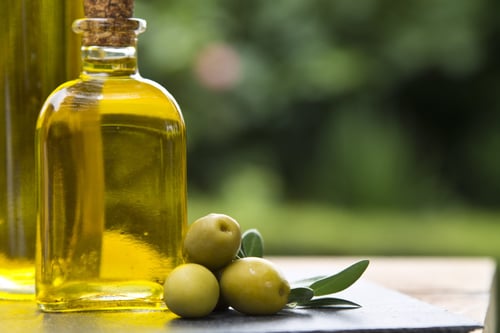“The olive tree is surely the richest gift of Heaven” – Thomas Jefferson
Olives and olive oil have a long, rich heritage dating back to the beginning of history. The Greek poet Homer called olive oil “liquid gold” and olive oil has been celebrated not only as a delicious food enhancer, but also as a health and beauty elixir and a symbol of peace and joy. As the benefits of olive oil and the Mediterranean diet continue to be documented in study after study, consumption of heart-healthy, flavorful olive oil has steadily increased around the world.
The Mediterranean basin is the birthplace of the olive tree, and today more than 95% of all olive oil produced in the world continues to come from the Mediterranean region including Europe and North Africa. Spain is the largest producing country by far, typically supplying about 45% of the world’s olive oil each season, consistently followed by Italy and Greece. Together, Spain, Italy, Greece, Turkey, and Tunisia represent on average about 80% of global olive oil production annually. Newer producing countries in the Southern hemisphere include Chile, Argentina, Australia, and New Zealand. These and countries like the United States contribute to the 5% of non-Mediterranean production.

While production is still centered in the Mediterranean, consumption is growing worldwide. The United States is the largest volume importer of olive oil globally, accounting for about 35 to 40% of world imports annually. However, both Spain and Italy consume more olive oil in total than the U.S. and the U.S. lags significantly when it comes to consumption per capita. On an individual basis, Greeks are the biggest consumers of olive oil, using about 20 liters or 5.3 gallons per person annually! Other high-consuming populations include Spaniards with about 13 liters or 3.4 gallons per capita, and Italians with about 11 liters or 2.9 gallons per capita. By contrast, American per capita consumption is only about 1 liter/1 quart per person – providing a lot of opportunities to replace less-healthy options with olive oil!






 The North American Olive Oil Association is committed to supplying North American consumers with quality products in a fair and competitive environment; to fostering a clear understanding of the different grades of olive oil; and to expounding the benefits of olive oil in nutrition, health, and the culinary arts. | © North American Olive Oil Association. All Rights Reserved.
The North American Olive Oil Association is committed to supplying North American consumers with quality products in a fair and competitive environment; to fostering a clear understanding of the different grades of olive oil; and to expounding the benefits of olive oil in nutrition, health, and the culinary arts. | © North American Olive Oil Association. All Rights Reserved.